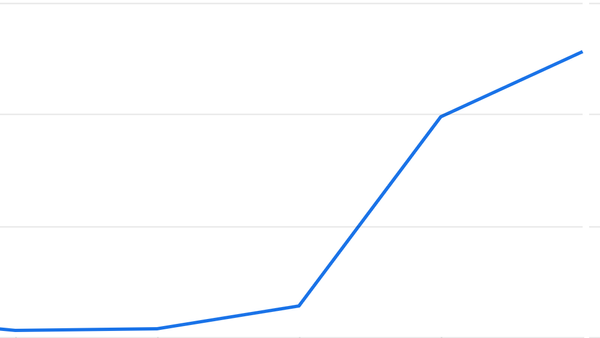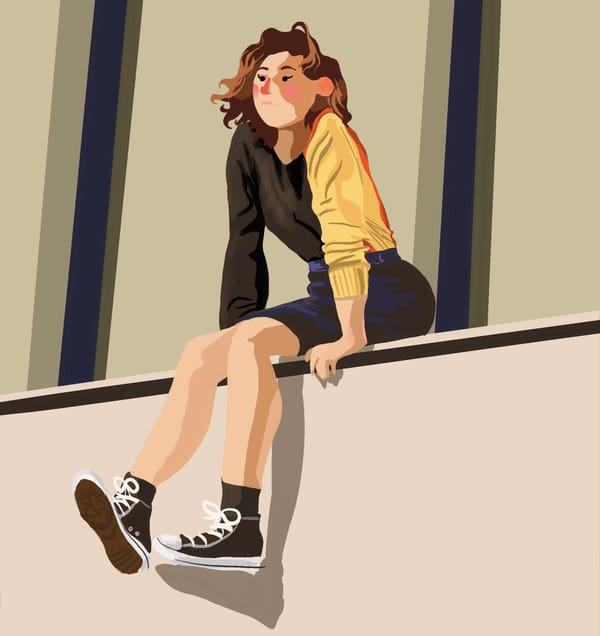Matthew Perry Meant a Lot To Me
What the passing of our favorite actors tells us about ourselves.

Matthew Perry, the star behind sarcastic and sharp Chandler Bing of the hit sitcom Friends, is dead.
And I, a person that has never crossed paths with Perry or been acquainted with him personally in any shape or form, have been sobbing like a baby.
Because even though Perry was a celebrity that had absolutely no knowledge of my existence, he meant a lot to me. Friends has been one of my favorite shows since I first binged all 10 seasons back in freshman year of college. And Chandler has been my favorite character for most of the time since.
So I want to reflect on why I’ve been crying over the passing of someone I didn’t actually know, and what that tells us about fandom, emotional impact of art and media, and (of course) marketing. I also want to process the emotional pain that I’m feeling, because damn it, this sucks.
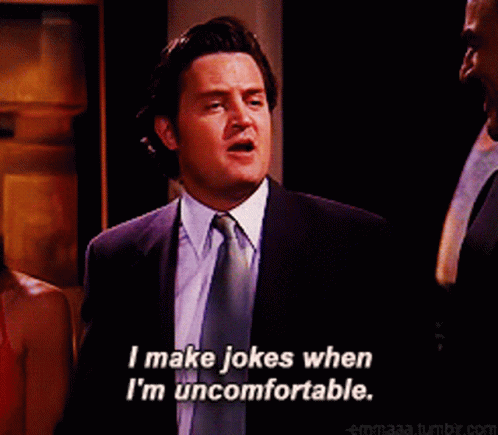
Popular Doesn’t Mean Bad
I love Friends. And I do not say that sarcastically or with exaggeration. I sincerely love that show with my entire soul.
So many people like to hate on this show, just like with any other extremely popular media property. It’s famous, so it must be bad, right? The assumption behind that disdain seems to be: if everyone likes it, nobody can truly find it meaningful. If it’s mainstream, it can’t become part of your identity.
But I think that’s a shortsighted way of thinking. Popular media can be just as great and meaningful and personal as niche media. Things are often popular… because people like them. And that doesn’t make any individual’s feelings any less intense or sincere
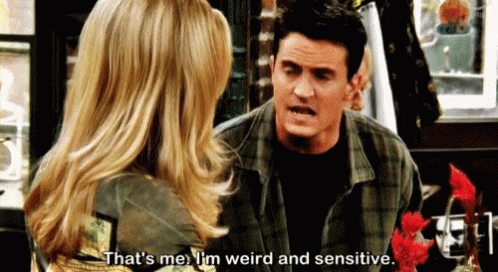
After all, I talk so much about fan-driven marketing and share stories of my love for brands and media. The love that fans like me can feel for shows like Friends or actors like Perry isn’t all that different to the other examples that I discuss across my content. It’s simply another facet of our human capacity to love.
How I Came to Love Friends
I first saw the show Friends as a freshman in college. I was in a new country, away from everyone I knew, surrounded by strangers. My roommates seemed scary. People in my classes felt intimidating. My “friend group” were a loose assortment of Spanish speakers, most of them from Latin America, and I somehow ended up having to stretch the limits of my high school Spanish classes to follow along with their jokes as I dug into bland cafeteria food.
And after around two months of desperately trying to make close friendships with the people around me and yet feeling, as I often would, that I was living on a different planet from them – I found friends. Through the show Friends. (Yes, it truly was that cliche.)
My then roommate Katarina heard about my love for sitcoms like How I Met Your Mother and asked if I’d be open to watching the show that those newer sitcoms were inspired by. So we ended up sitting on the couch of the main area in our dorm room, eventually joined by a rotating cast of others who would become my close companions throughout college, and watch Friends.
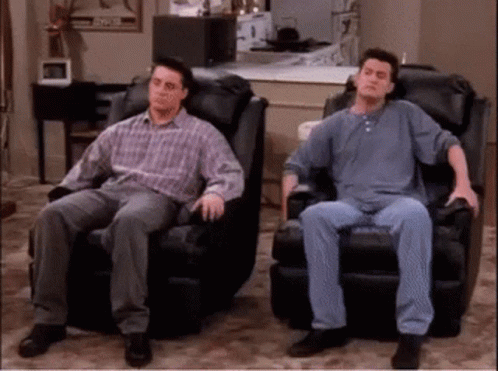
We got through the whole show in less than a month.
At the end of it, everyone that I watched any of Friends with became… well, friends. Who I stayed close to for the entire four years of my undergraduate education. Many of whom I still talk to multiple times a month.
Friends became one of my favorite shows before I got into season 2. I’ve seen all 10 seasons, in order, at least 12-15 times. I would watch it with everyone from my roommates, to my ex-boyfriends, to my little brother, to my husband. I would refuse to let anyone use my giant Friends mug, that I carried with me for years before finally donating it during a move. I would quote jokes from episodes in nearly every situation imaginable.
Friends got me through quarantine in the early phases of the COVID-19 pandemic. It was my first month post-graduation, I was stuck all alone in an empty apartment (this was before I got my cat), and I would turn on the TV and sit on the couch playing the show. I’d fall asleep to the familiar voices of the cast that I loved so much, feeling a little less desperately alone.
Friends made me believe in love.
Parasocial Relationships Can Be Really Freaking Meaningful
No fictional couple has meant as much to me as Chandler and Monica

I know they’re less popular than the OG pairing on Friends of Ross and Rachel. But frankly, I think nobody else even comes close to the portrayal of Chandler and Monica’s relationship.
Two friends who end up hooking up on a trip, then realize they want to keep sleeping together, and eventually they begin dating and fall in love. After a while, they become so close that they get married.
And, here’s the shocking part: they stay together. The sitcom actually lets us see Chandler and Monica as a real couple, both before and after their marriage. We see them going through the full complexity of a real adult relationship. Messy, chaotic, and so beautiful. And the sense of humor that they share! It’s incredible.
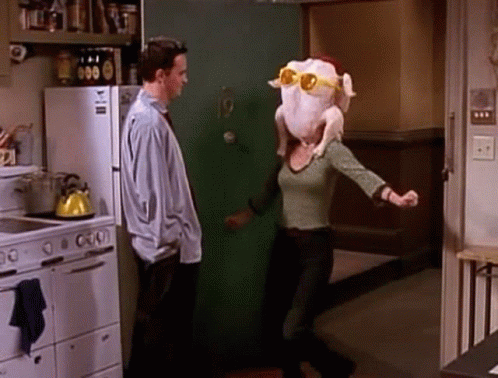
I haven’t had many models of healthy relationships in my life. In fact, I never really saw any functional couples of marriages growing up. My parents had a messy relationship and an even messier separation. Most of my friends had parents who were divorced or resented each other.
And yet, most media would only tell the stories of how people fall in love. How they get together. How they break up. Very few stories actually tell you what happens when people love each other and continue to stay together.
I couldn’t even imagine what a healthy relationship looked like. Until Monica and Chandler.
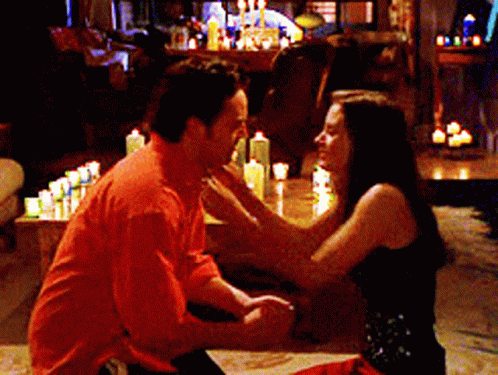
I literally rewatched Monica and Chandler’s arc when I was deciding to marry my husband. I watched their proposal and wedding episodes before my own wedding. I thought back to them whenever me and my husband would have an argument, or struggle to adjust to our lives together, or fear for our future.
Because Monica and Chandler weren’t perfect. They weren’t “meant to be”. But they made it work and they made themselves happy. And that showed me that I could be happy with someone too.
Yes, I never met Matthew Perry. My attachment to him and his work has been purely parasocial. But he’s changed my life. And that means something.
The Grief We Feel is Valid
Human hearts truly are incredible.
We can feel real love for people we’ve never met. For characters who never existed. For objects that could never love us back.
And the love that we can feel for people, objects, or organizations includes, as defined by Dr. Aaron Ahuvia and his co-authors:
- Self–brand integration,
- Passion-driven behaviors
- Positive emotional connection
- Long-term relationship
- Positive overall attitude valence
- Attitude certainty and confidence (strength)
- Anticipated separation distress.
That last bullet point is the real kicker. Separation distress is the foundation for grief. It’s the pain we feel when we lose someone or something we love. And when a celebrity who played a character that we love dies, we feel real and palpable grief. We’ve lost the subject of our love. Our brains don’t care if we ever spoke to or interacted with that subject – we’ve loved them all the same.
I know that the Matthew Perry as I knew him is technically not gone. I could turn on Friends at the press of a button, and there he’ll be: Chandler Bing, played by Perry, bouncing around the set and delivering the same jokes that I’ve heard 15 times before.
Nobody else in that cast will know that they’re speaking to a ghost. The script won’t change because Perry died. The show will go on as it always has, a fictional moment in time, preserved on streaming services for our entertainment.
Yet, something will never feel the same. Because I, the viewer, will know that Perry has passed away. That he would never be able to deliver another sarcastic remark. That although Chandler Bing may live on in the narrative universe of the show, the actor that brought him to life will never be able to film another reunion scene.
I lost Matthew Perry yesterday. And if you loved his work, you lost him too. And as with any loss of someone important to us, it’s okay to grieve. Don’t feel shame for crying. I’ll try not to, as well.




